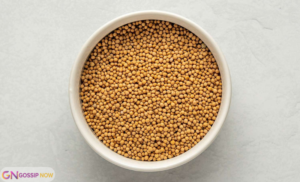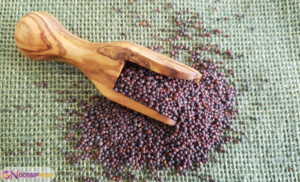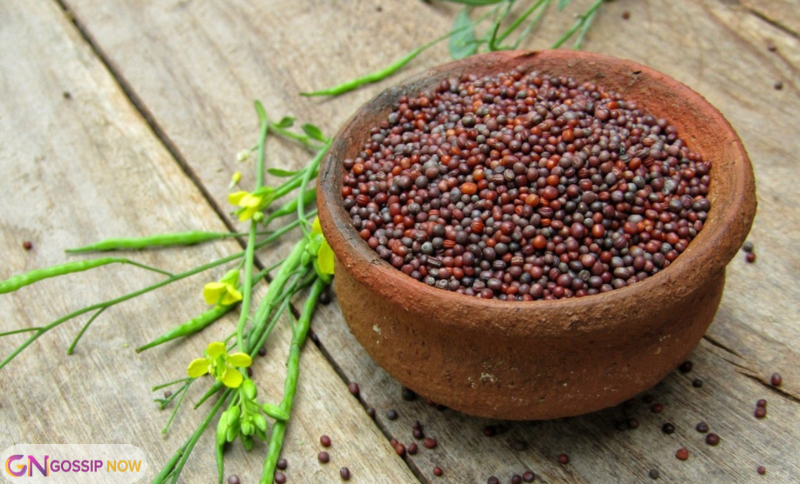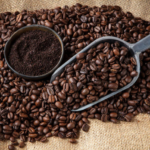Have you ever wondered what makes mustard so zesty or what adds that pop of spice to Indian dishes and pickles? The answer lies in mustard seeds. These tiny seeds may look small, but they pack a powerful punch—both in the kitchen and in terms of health. Whether you’re sprinkling them into a curry, making your own mustard, or just exploring natural health boosters, mustard_seeds are a staple worth knowing more about. And yes, we’ll answer a burning question: Are mustard_seeds good for you?
In this guide, we’ll break down the different types of mustard_seeds, their health benefits, how they’re used, and where to buy mustard seeds, so you can start making the most of them in your daily routine.
What Are Mustard Seeds?
 Mustard_seeds come from the mustard plant, a member of the Brassica family, which also includes cabbage, broccoli, and kale. These seeds have been cultivated for thousands of years and are used globally in various cuisines. From seasoning to health remedies, their uses are vast and varied.
Mustard_seeds come from the mustard plant, a member of the Brassica family, which also includes cabbage, broccoli, and kale. These seeds have been cultivated for thousands of years and are used globally in various cuisines. From seasoning to health remedies, their uses are vast and varied.
There are three main types of mustard_seeds:
-
Yellow mustard_seeds (mild and tangy)
-
Brown mustard_seeds (spicy and earthy)
-
Black mustard_seeds (sharp and pungent)
Each has a unique flavor profile, which we’ll explore in detail below.
Types of Mustard Seeds and Their Uses
1. Yellow Mustard Seeds
-
Also known as white mustard
-
Common in American mustard sauces
-
Mild flavor, perfect for pickling and condiments
2. Brown Mustard Seeds
-
Often used in Indian cooking
-
Bolder and spicier than yellow seeds
-
Adds heat and depth to dishes like curries and stir-fries
3. Black Mustard Seeds
-
Pungent and powerful
-
Used in South Asian cuisine
-
Typically tempered in oil to release flavor
Pickled Mustard Seeds: A Flavor Bomb
If you’ve never tried pickled mustard seeds, you’re missing out on a gourmet treat. Known as “mustard caviar,” these pickled pearls pop with a tangy, spicy flavor that works beautifully as a topping on meats, vegetables, sandwiches, and charcuterie boards.
To make your own, simply simmer mustard_seeds in vinegar, water, sugar, and salt. In just 30 minutes, you’ll have a jar full of flavor that lasts for weeks.
Mustard Seeds Benefits: Why They’re Good for You
Let’s get into what really matters—mustard_seeds benefits. These seeds aren’t just tasty; they’re nutritional powerhouses loaded with health-supporting properties.
✅ Rich in Antioxidants
Mustard seeds contain glucosinolates and selenium, both known to protect cells from oxidative stress.
✅ Support Digestive Health
They stimulate the production of digestive enzymes, helping your body break down food more efficiently.
✅ Anti-inflammatory Properties
Thanks to compounds like isothiocyanates, mustard_seeds can help reduce inflammation in the body.
✅ Heart Health Support
Mustard_seeds may support healthy cholesterol levels and blood circulation.
✅ Aid in Metabolism
The selenium and magnesium found in mustard_seeds help regulate metabolism and thyroid function.
Are Mustard Seeds Good for You?
Absolutely. Not only are mustard_seeds low in calories, but they also provide essential nutrients like:
-
Omega-3 fatty acids
-
Calcium
-
Iron
-
Zinc
-
Magnesium
They also fit seamlessly into vegan, vegetarian, and keto-friendly diets, making them an easy superfood to incorporate into almost any meal.
How to Use Mustard Seeds in Cooking
Here’s how you can bring these flavorful seeds into your kitchen:
🔥 Tempering
Common in Indian cuisine. Heat oil, add mustard_seeds until they pop, and pour over dishes.
🥗 Salad Dressings
Grind mustard_seeds and mix them with vinegar and oil for a fresh, zesty dressing.
🍔 Marinades and Rubs
Use ground mustard_seeds in dry rubs for meat or tofu to add spice and texture.
🍞 Baking
Some artisan breads include mustard_seeds for crunch and flavor.
🥒 Pickling
Yellow mustard_seeds are often used in pickling spice blends.
🥄 Mustard Sauce
Of course, grind them to make your own homemade mustard—hot, spicy, or smooth.
Where to Buy Mustard Seeds
You can find mustard_seeds in various stores and online platforms. Depending on your preference, here are a few options:
-
Grocery Stores: Look in the spice aisle or international foods section.
-
Indian/Asian Markets: Best place to find black mustard_seeds and brown mustard_seeds in bulk.
-
Online: Amazon, Thrive Market, and specialty spice shops offer organic and non-GMO options.
Always check the origin and purity if buying for health reasons. Organic mustard seeds are a safer bet when consuming regularly.
How to Store Mustard Seeds
Mustard_seeds have a long shelf life if stored correctly. Keep them in:
-
Airtight containers
-
Cool, dark places
-
Away from moisture and direct sunlight
Whole seeds can last for up to two years, while ground mustard loses its flavor quicker—usually in about six months.
Interesting Facts About Mustard Seeds

-
One mustard plant can produce thousands of seeds.
-
Mustard_seeds are referenced in religious texts like the Bible and Quran as metaphors for faith and growth.
-
In ancient Rome, they were ground into paste and used for medicinal purposes.
Nutritional Value of Mustard Seeds (per tablespoon)
| Nutrient | Amount |
|---|---|
| Calories | 30 kcal |
| Protein | 1.5 g |
| Fat | 2.0 g |
| Carbohydrates | 1.8 g |
| Fiber | 0.8 g |
| Calcium | 58 mg |
| Magnesium | 33 mg |
| Iron | 1.2 mg |
Precautions and Allergies
While generally safe, mustard_seeds can trigger allergic reactions in some individuals. Symptoms include:
-
Skin rash
-
Respiratory discomfort
-
Gastrointestinal upset
If you’re introducing mustard_seeds to your diet for the first time, start with a small amount to test for sensitivity.
Author Bio Table
| Contributor | Editorial Team – Wellness & Nutrition Division |
|---|---|
| Team Expertise | Herbal Ingredients, Spices, Natural Health Writing |
| Experience | Over 10 years in Culinary & Holistic Wellness |
| Background | Food Science, Ayurvedic Nutrition, Recipe Curation |
| Content Focus | Superfoods, Functional Spices, Health Trends |
| Editorial Standards | Google E-E-A-T Compliant, Fact-Checked Content |
| Based In | United States |
Conclusion
In conclusion, mustard_seeds may be small, but they offer a huge range of benefits. Whether you’re cooking, pickling, or boosting your health, these tiny seeds are incredibly versatile. Furthermore, they’re affordable, widely available, and easy to store, which means they’re an ideal addition to any kitchen. Because of their unique flavor and powerful nutritional profile, there’s no reason not to start using them today. So, why not add mustard_seeds to your meals and experience the difference?
FAQs
1. Are mustard seeds good for you?
Yes, and in fact, mustard_seeds are packed with antioxidants, minerals, and anti-inflammatory compounds, which is why they’re excellent for your health.
2. What’s the difference between yellow, brown, and black mustard seeds?
While yellow mustard_seeds are mild, brown seeds offer more spice, and black seeds deliver the boldest flavor—so choosing depends on your taste preference.
3. Can you eat mustard seeds raw?
Although you can eat them raw, it’s best to temper or grind them, since that enhances both flavor and digestibility.
4. How do you make pickled mustard seeds?
To make them, simply simmer the seeds in vinegar, sugar, and salt—because that process softens them and adds a delicious tangy bite.
5. Where can I buy mustard seeds?
Fortunately, you can buy mustard_seeds at most grocery stores, local spice markets, or online for convenience.






